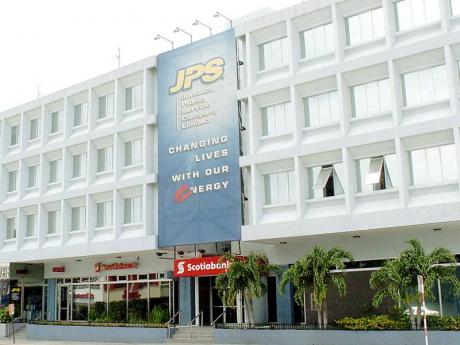Energy flip-flop - Government backtracks on JPS-monopoly policy
Daraine Luton, Senior Staff Reporter
TWO YEARS after the Government indicated its willingness to put an end to the monopoly of the Jamaica Public Service Company (JPS), the Bruce Golding administration is backing away from that position.
Energy Minister Clive Mullings told the House of Representatives yesterday that it was "unwise" to seek to remove the JPS as the sole distributor of electricity on the island.
"Bearing in mind the size of Jamaica, while no RFP (request for proposal) has gone out, studies and enquiries have shown that there won't be takers to go into transmission and distribution because you are not guaranteed any rate of return on either thing - either generation or transmission and distribution," Mullings said.
In 2009, then energy minister James Robertson told Parliament that the time had come to put thought into breaking the JPS monopoly.
"We believe that it is now necessary to reconsider the value of maintaining a monopolistic structure with respect to distribution and transmission of electricity," he had declared in Parliament.
"As such, similar to power generation, power transmission and distribution must now be open to competition," Robertson had added.
Not attractive to investors
But Mullings, who has played musical chairs with Robertson as energy minister, yesterday argued that the transmission and distribution side of electricity provision is 20 per cent of the business and is not attractive to investors.
Recently, Washington DC-based advisers, Castalia, said the break-up of the monopoly would more likely result in an increase in rates for residential and small commercial customers, and no reduction in the costs to large industrial users.
Castalia's investigation was commissioned and paid for by JPS.
Meanwhile, Mullings announced in the House of Representatives yesterday that Cabinet has approved the transfer of 40 per cent of the JPS share to Korea East West Power (KEWP) company.
The shares were sold by Marubeni, which held 80 per cent of the JPS. The sale of the shares means that Marubeni and KEWP will both own 40 per cent of the JPS.
The Government of Jamaica owns 19.9 per cent, while 3,000 shareholders own the remaining 0.1 per cent of the shares.
"KEWP is expected to significantly improve the operations of JPS," Mullings said.
Phillip Paulwell, the Opposition spokesman on energy, had urged the Government to seek to break the monopoly on the distribution of power. He said the discussions surrounding the transfer of the shares by Marubeni represented the perfect opportunity to pressure the JPS into giving up its monopoly.
But yesterday Mullings said: "JPS and its shareholders have committed to install the 480 megawatts of urgently required electricity, without a government guarantee. There is a need for a degree of certainty that the electricity to be generated will get to a sufficient number of customers in a reliable and consistent manner to make the project affordable for consumers and feasible to the JPS."
He added: "The JPS would likely require substantial compensation for giving up or foregoing investments in the transmission and distribution system to lessen service interruptions and blackouts that plagued the supply some years ago."
Mullings also argued that several persons in rural areas could suffer if the monopoly is broken, as it might cost more to transmit power to those areas.
"The break-up of the distribution and transmission network could result in these communities being left stranded without service."
Meanwhile, Mullings told Parliament the JPS has agreed to implement power wheeling along the transmission and distribution system so that customers who are able to generate electricity at one location can also use the power at another location. He also said the power company would be facilitating net billing for self generators of electricity.


